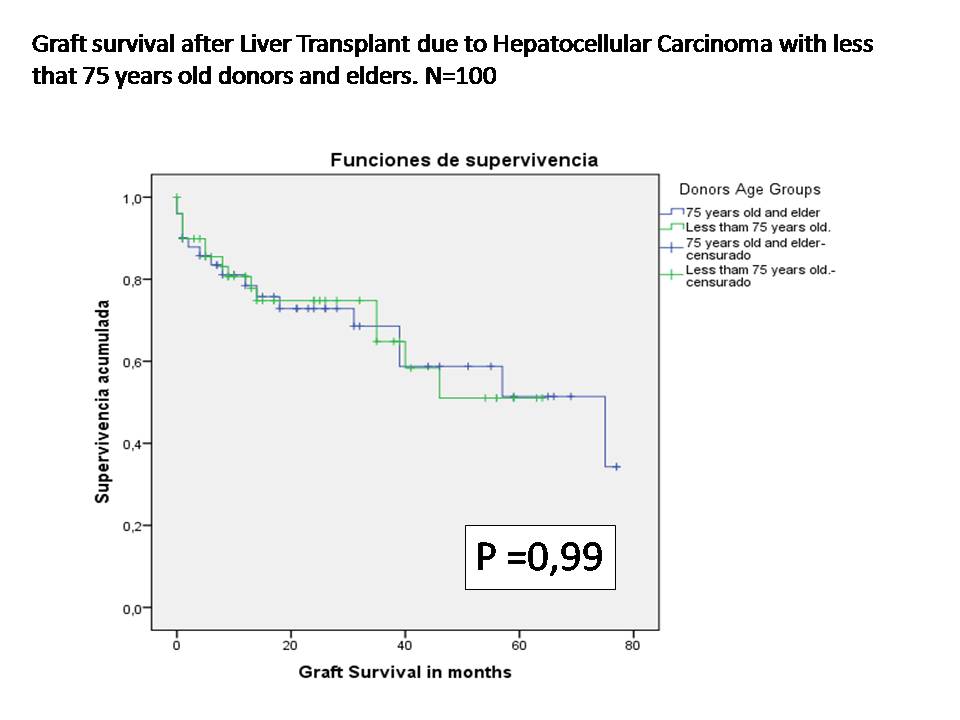Impact of the Donor Age and Comorbidities on Graft Survival after Liver Transplant due to Hepatocellular Carcinoma. Experience in 100 consecutive cases.
Luis Martinez Insfran1, Pablo P Ramirez1, Pedro Cascales1, Rocio Gonzalez Sanchez2, Tatiana Nicolas1, Beatriz Gomez Perez1, Gago F. Alconchel, Laura Barona3, Guillermo Carbonell4, Francisco Sanchez Bueno1, Ricardo Robles1, Pascual Parrilla1.
1General Surgery Service, , University Hospital of Arrixaca, Murcia, Spain; 2Hepatology Unit, University Hospital of Arrixaca, El Palmar, Spain; 3Patology Unit, University Hospital of Arrixaca, El Palmar, Spain; 4Radiology Unit, University Hospital of Arrixaca, El Palmar, Spain
Introduction: The limitation of donor organs has an important influence on the number of patients who can undergo a liver transplant (LT), even more due malignant causes. To avoid mortality on the waiting list, it is crucial to expand the criteria for organ acceptance. The objective of this study is to measure the influence of Donor Age and Comorbidities on overall and Graft Survival between patients who received organs from diseased donors less than 75 years and older.
Patients and Methods: From a prospective database of consecutive 100 patients who underwent a LT due to Hepatocellular Carcinoma between January 2011 and May 2017, we studied the influence of Donor Age and Comorbidities on Postoperative Complications and Graft Survival, performing a comparative analysis between recipients of less and over 75 years old donors. A univariate analysis was performed considering the statistically significant if p <0.05. The SPSS database software v.22 was used.
Results: From the 100 patients included in the study, half of them (50%) received less than 75 years old donor organs and the other half (50%) from elders. The median follow-up time of patients in the series was 27.91 months (0-82 months). In the univariate analysis we observed a higher prevalence of Arterial Hypertension (AHT) and Diabetes (DM) in the group of donors older than 75 years (p = 0.02 in both cases). Graft survival at 1 and 3 years was 85.5% and 74.8% respectively among patients with less than 75 years old donors, and 78.5% and 67.2% among patients with older donors, without statistically significant differences.
Conclusion: Despite the higher prevalence of AHT and DM among donors older than 75 years, we found no differences on graft survival. At least in our experience, it allows increased use of older donors organs while providing sufficient security for the recipient.

